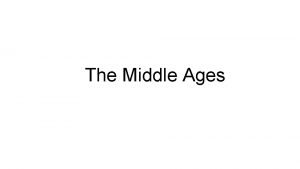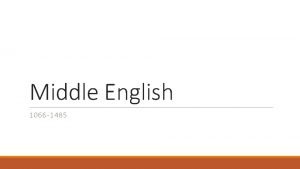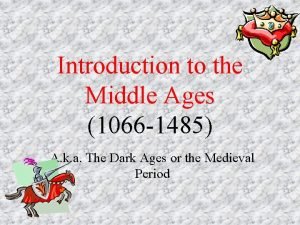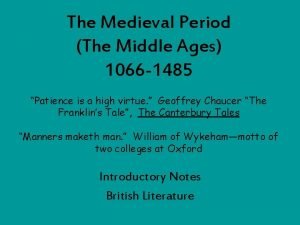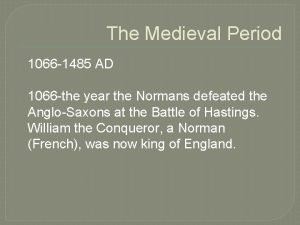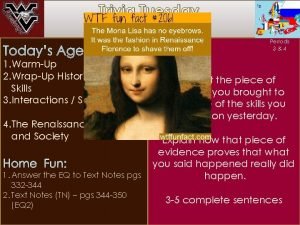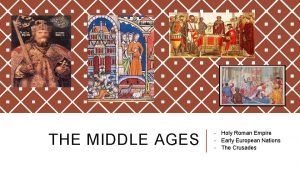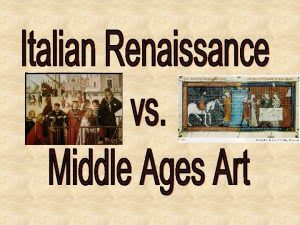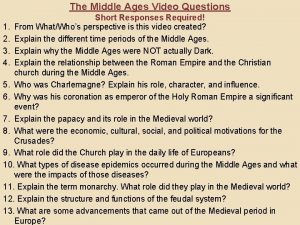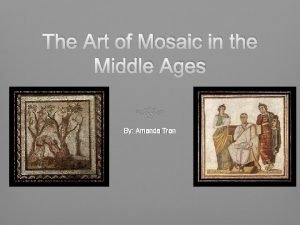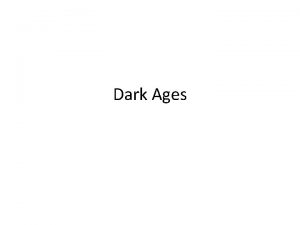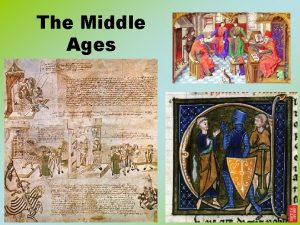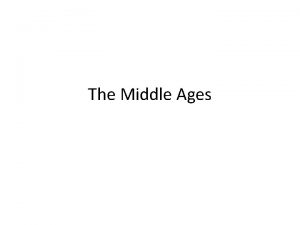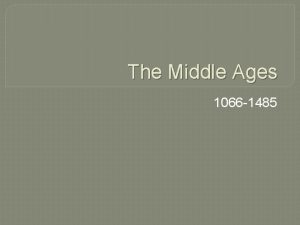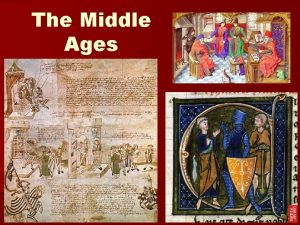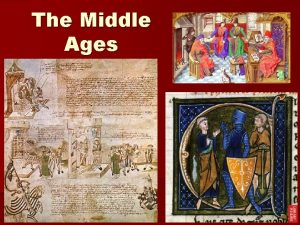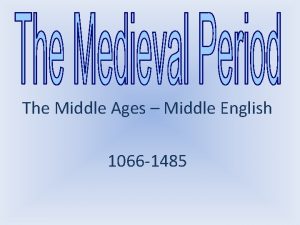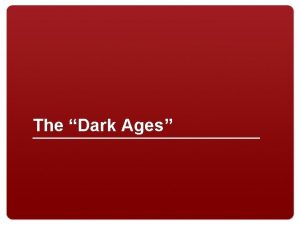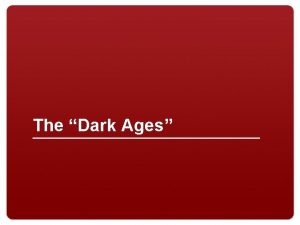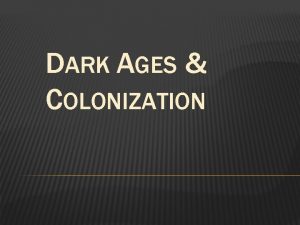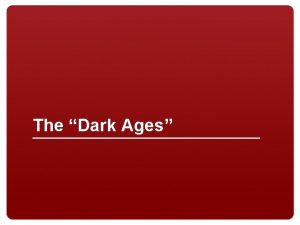The Middle Ages 1066 1486 The Dark Ages















- Slides: 15

The Middle Ages 1066 -1486

The Dark Ages? • This era was not actually dark; the era was very vibrant and its people were creative and resilient despite war, the plague, and oppression. • Middle Ages brought us: Universities, governmental forms, concepts of the world and God. • Most narratives of this time reflect the positive aspects of the time

Adventure, Morality, and Life • When you hear medieval what do you think of? • Knights, conquests, & battles were the foundation for the popular romance literature of the era. • Stories are based on love, betrayal, conquest, hope, and desire • Religious narratives were very significant

…Continued • Religious narratives contained entertaining travel adventures with morally instructive religious stories. • Often these stories were allegories – Allegory- stories in which literal elements represent abstract or moral concepts • By using allegories, medieval literature explored cultural ideas, confirmed values and amused audiences.

…. Continued • As the Middle Ages progressed, elements of daily life made way into the stories – I. E. plague and city living


History in Britain • In 1066 William the Conqueror becomes King of England-he reigns for 5 years (French) • The Normans had control in England (heavy French influence) – There is a combo of Anglo. Saxon and Anglo-Norman Tradition • Henry I was the next influential king (1100) – 4 th son of William the Conqueror

• Many wars broke out – Caused by power struggles, religion, and fights over land • Henry II becomes king and begins to take back control of England begins expanding their territory • Richard I becomes king (The Lion Heart)-Made England part of the Holy Roman Empire – Often absent from England

• John-Richard’s younger brother and successor (1212) – Lost much of England’s French territories – Kept close relations with the Pope • He was very unpopular – He raised taxes, getting into wars, conflict with the Pope – Opposed the Magna Carta- conflicts • Henry III becomes king (John’s son) – Unsuccessful

• Henry V becomes king (1413), then dies of dysentery • Henry VI becomes king but goes crazy after losing 100 Year War in 1453 – Lack of control cause civil war (War of Roses) • Edward IV dethroned him and regained control • Richard III becomes king when Edward dies – Ruthless

• Edward I becomes king (1272 -1307) – Regained order and reorganized government • Edward II (his son) was unsuccessful – Lost power when his wife, Queen Isabella and her lover, invaded England (she was French) • Edward III (1327 -1377) – Much more successfulregained government order – Declared himself rightful heir throne (100 year war begins)

The Great Famine and Black Death • Famine: 1315 -1317 • Killed more than 10% of England’s population (roughly 500, 000 people) • The Black Death: The bubonic plague • Killed 1/3 -1/2 of the English population

Geoffrey Chaucer • 1343 -1400 • Father of English Literature • He was a page as a child and young man • He did a little bit of everything and enjoyed experiencing new things • Helped out with the kings doing various jobs

Canterbury Tales • Written in the late 14 th century in Middle English • Written in Iambic Pentameter • Narrator thought to be Chaucer • Collection of stories • Begins with the Prologue – Sets up the framework for the rest of the story – Frame story: a story within a story • The story is about a group of people traveling together and telling their story – They are going to St Thomas Becket’s Shrine in Canterbury

Pilgrimages • Pilgrimage: a journey, especially a long one, made to some sacred place as an act of religious devotion • Ex-Pilgrimage to the Holy Lands in Israel/Palestine or St. Peter’s Basilica in Rome
 Why are the middle ages called the dark ages
Why are the middle ages called the dark ages Renaissance vs medieval art
Renaissance vs medieval art The middle ages 1066 to 1485 unit introduction
The middle ages 1066 to 1485 unit introduction The middle ages 1066-1485 unit test
The middle ages 1066-1485 unit test The middle ages 1066 to 1485 unit test closed book
The middle ages 1066 to 1485 unit test closed book Medieval period 1066 to 1485
Medieval period 1066 to 1485 The middle ages 1066 to 1485 unit test
The middle ages 1066 to 1485 unit test Normas ntc 1486
Normas ntc 1486 Dark ages def
Dark ages def Dark ages vs renaissance
Dark ages vs renaissance Feudal system definition
Feudal system definition Dark ages vs renaissance
Dark ages vs renaissance Physical education during feudalism
Physical education during feudalism Dark ages video questions
Dark ages video questions Middle ages mosaics
Middle ages mosaics Grabalaptop
Grabalaptop
